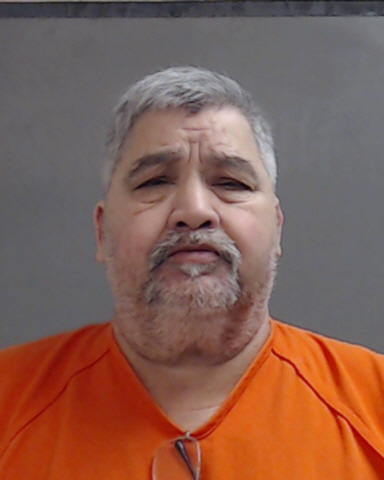An appeals court has rejected a sudden passion argument from a Mission man who claimed during his sentencing hearing that he shot and killed his wife after she mocked his genitals.
The 13th Court of Appeals denied 61-year-old Javier Sobrevilla’s appeal Thursday, affirming the man’s first-degree murder conviction and his 30-year sentence.
Javier pleaded guilty to first-degree murder on April 30, 2018, the day he was scheduled for a jury trial.
He admitted to shooting and killing his estranged wife, Maria Sobrevilla, on Nov. 21, 2016.
In his appeal, he argued that 430th state District Judge Israel Ramon Jr. erred when he rejected Javier’s last-minute sudden passion defense during his punishment hearing. Had Ramon accepted the argument, Javier would have been convicted of second-degree murder, which would in turn have impacted how long he could be sentenced to prison.
Authorities arrested Javier, who fled to Reynosa after the shooting, on Nov. 26, 2016.
When Hidalgo County Sheriff’s Office homicide investigators interviewed the man, he initially claimed to have no knowledge of Maria’s death.
“Sobrevilla asserted that he only learned of her death afterwards by a phone call from his brother,” the appellate court’s ruling says.
However, the man changed his story and provided a second statement to authorities, telling homicide investigators that on the morning of his wife’s murder he had heard the woman talking to her lover on the phone.
“I got angry and I wanted to kill him. I got dressed and got my .40 claiber Smith and Wesson weapon which was registered in the name of my wife and I loaded it with nearly 8 to 10 bullets,” the ruling stated, quoting Javier’s statement to authorities.
The man told investigators that instead of his planned trip to Reynosa that day, he drove to his wife’s house, which was near Monte Cristo and Closner. He discovered where she was staying when he spotted her vehicle three weeks prior to the shooting and followed her home, according to the ruling.
Before he arrived that day, Javier told investigators he loaded the gun to fire, the ruling stated.
The ruling details how Maria exited the house to talk to Javier, who then asked where her boyfriend was, at which point Maria told Javier that the man left because he thought Javier was coming over. Then Maria spotted the gun, according to the ruling.
“Then Maria asked me if I was going to kill her. I grabbed the weapon and I pointed it at her to try and scare her and I asked her twice if she was scared. Maria tries to grab the gun and the gun fired twice,” Javier said during an interview with HCSO investigators.
Javier told authorities the weapon did not have a safety.
“I saw Maria falling to the floor and I heard her saying, ‘May God forgive you,’ and I left the property thinking that she was just wounded,” Javier said.
The man told authorities he went home after the shooting, hid the weapon, locked up his house and crossed to Reynosa. On Nov. 23, 2016, he learned police had searched his house and found the gun.
Javier said he didn’t intend to kill his wife, though he was after her boyfriend, the ruling stated.
But right before the sentencing, Javier offered up a new explanation for why he shot Maria.
“According to Sobrevilla, when Maria approached his vehicle on the day she died, she exclaimed ‘No, you’re an idiot. … No, you’re not worth [expletive]. I’m not going to go with you. He makes love to me what I want [sic]. You’re like this and he’s like this,'” according to Javier’s testimony at sentencing.
The man told the court how Maria was using hand gestures and used her pinky to describe him, which he “understood to be describing [the boyfriend’s] penis compared to [his] penis.”
Javier told the court Maria humiliated him, according to the ruling.
“Sobrevilla claimed that all of this made him so furious that his vision went blurry and he grabbed his gun. Sobrevilla testified: ‘I kept telling her to shut up, to shut up and she repeated the same thing and that’s when I don’t know how many times I fired,'” the appellate court’s ruling stated.
This is the crux of Javier’s sudden passion argument, which the trial court rejected for several reasons, including that the only evidence of this came from Javier through his testimony during the punishment phase, according to the ruling.
“Additionally, Sobrevilla initiated the confrontation by driving, uninvited, to the house where his wife was staying, and seeking out Maria. And Sobrevilla only knew where she lived because he had followed her car to her home,” the ruling stated. “Because there is some evidence that Sobrevilla precipitated the confrontation, the evidence is legally sufficient to support the trial court’s rejection of Sobrevilla’s sudden passion claim.”
The ruling also references Javier’s homicidal intentions toward Maria’s boyfriend, and that even though those murderous intentions were directed at the boyfriend, Javier did not leave after learning the man was not at Maria’s house. He also did not call for help after shooting Maria and he fled to Mexico.
His testimony during the punishment phase also contradicted what he told sheriff’s investigators when he claimed his gun misfired twice.
“The fact that Maria was shot once from the front and once from behind suggests at least one of the shots was intentional and not merely a misfire,” the ruling states.
Javier will be eligible for parole in 2031, when he is 72.




